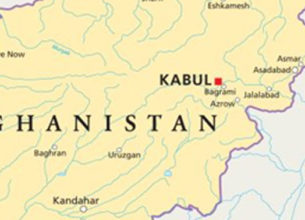AT WTO, INDIA FOR ‘UNBIASED’ ASSESSMENT OF TRADE POLICIES
15, May 2019

Prelims level : International Institutions
Mains level : GS -II Governance, Constitution, Social Justice and IR
Why in News?
-
India is trying to rally the support of other developing countries in the World Trade
Organisation to reform the “biased” system of assessing a country’s services trade policies, according to an official closely associated with the development.
Details:
- The existing system, developed by the Organisation for Economic Co-operation and Development (OECD), has significant quantitative and qualitative flaws. Further, it is biased towards developed countries.
- The study also found that the OECD method resulted in several counter-intuitive results as compared with the real policies implemented by the countries in question, such as ranking India very high in terms of restrictiveness.
- India has come up with a “better and more reliable” mechanism to measure restrictiveness in the services trade, and has approached China, Brazil, Indonesia, Turkey and South Africa to highlight the importance of the new system. Representatives of all these countries were in New Delhi on Monday and Tuesday for a WTO meeting.
Organisation for Economic Cooperation and Development:
- OECD stands for Organisation for Economic Co-operation and Development
- It is an international economic organisation
- Established in 196, Secretariat : Paris, Members : 35
- Latvia has joined in July, 2016
- Aims to stimulate economic progress and world trade
- Its members are committed to Democracy and Market Economy
- Most OECD members are high-income economies with a very high Human Development Index (HDI) and are regarded as developed countries
- India is not a member of OECD
India and the OECD:
- The OECD Council at Ministerial level adopted a resolution on 16 May 2007 to strengthen co-operation with India, as well as with Brazil, China, Indonesia and South Africa, through a programme of enhanced engagement, defining these countries as Key Partners of the OECD. As a Key Partner, India is included in OECD analysis and statistical databases. Its participation in OECD bodies and fora is encouraged as a means of allowing Indian policy makers to benefit from the OECD’s technical expertise and analytical capacity.
Benefits:
- OECD statistics, sector-specific country reviews and targeted joint activities are key to advancing India’s domestic reform agenda while increasing the OECD’s relevance in global governance.
- This interaction also benefits OECD members and other Key Partners’ engagement with India as a major player in the global economy. At fora like the G20, this dialogue supports a coordinated approach to addressing pressing policy challenges through leveraging the Organisation’s policy advice.
Areas of work:
- OECD-India collaboration continues to build, in areas such as anti-corruption, corporate governance, economic policy, environment, fiscal relations, as well as, responsible business conduct, steel, taxation, trade and investment.
India’s participation in OECD general activities:
-
India participates in selected OECD Committees and their subsidiary bodies. India is also a member of the Development Centre, the Global Forum on Transparency and Exchange of Information for Tax Purposes, the International Transport Forum, the Financial Action Task
Force, and an Association Country of the International Energy Agency. Engagement in the G20 context includes India’s active role in the Global Forum on Steel Excess Capacity and its adherence to the G20/OECD Principles of Corporate Governance. Indian ministers and officials have also attended the OECD Ministerial Council Meetings.







